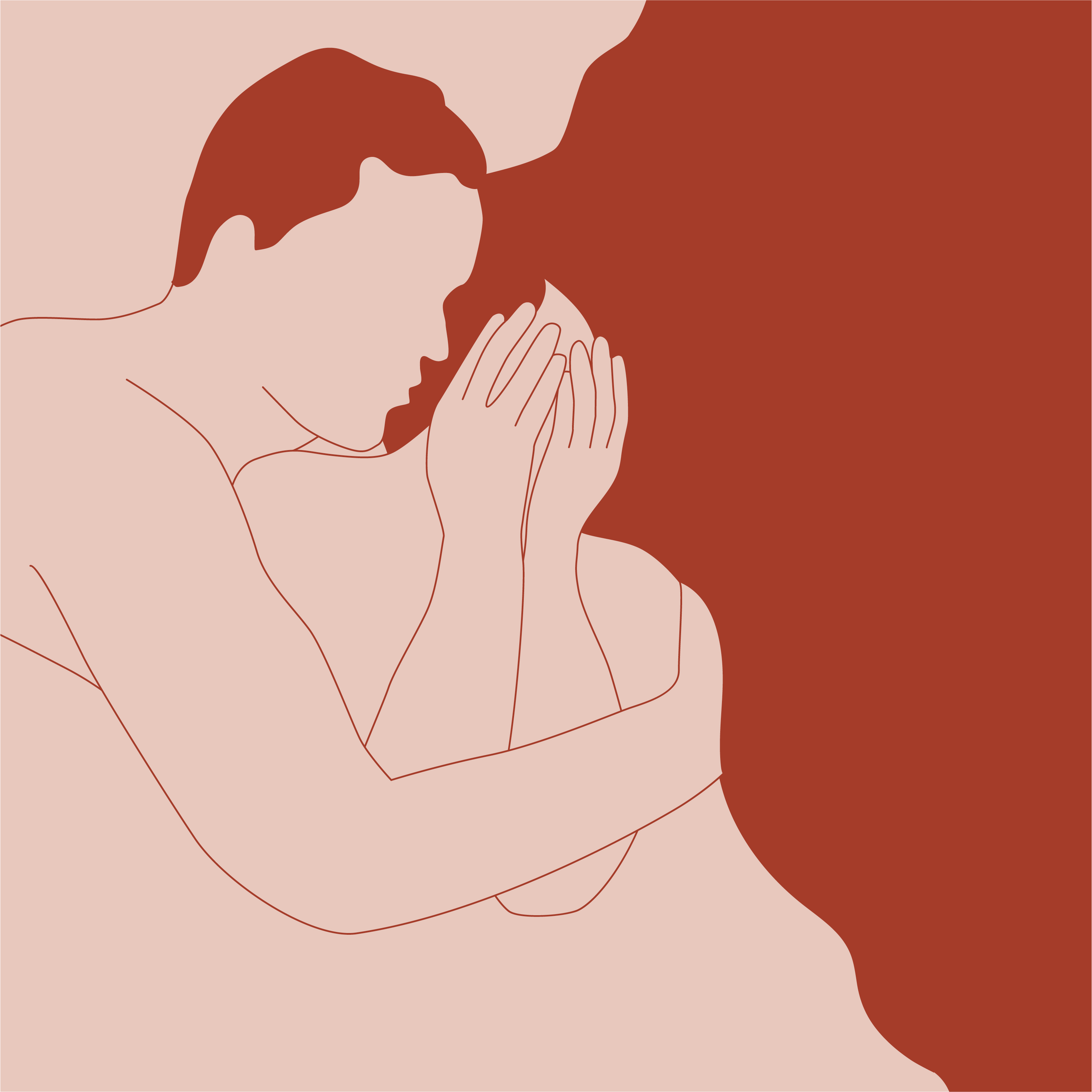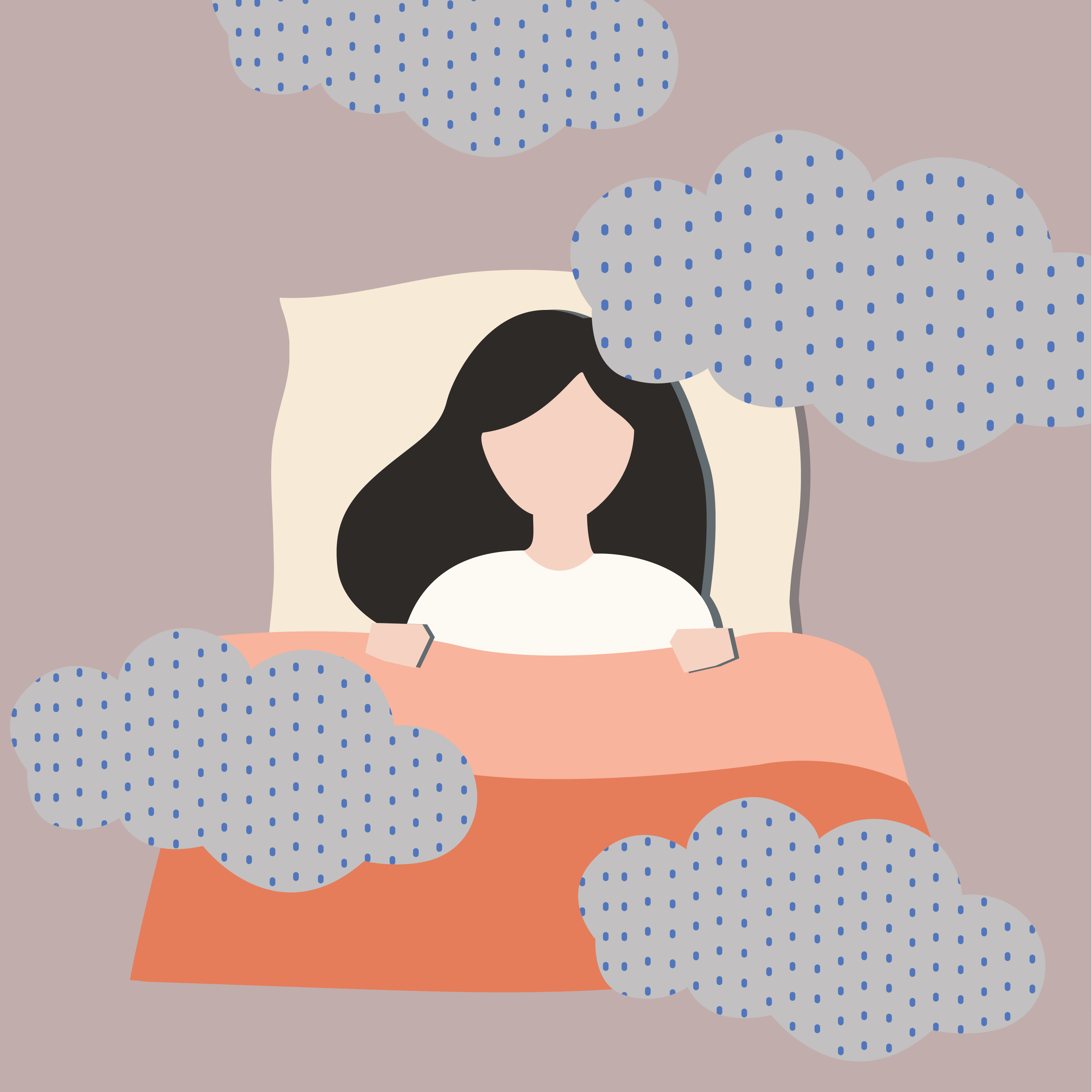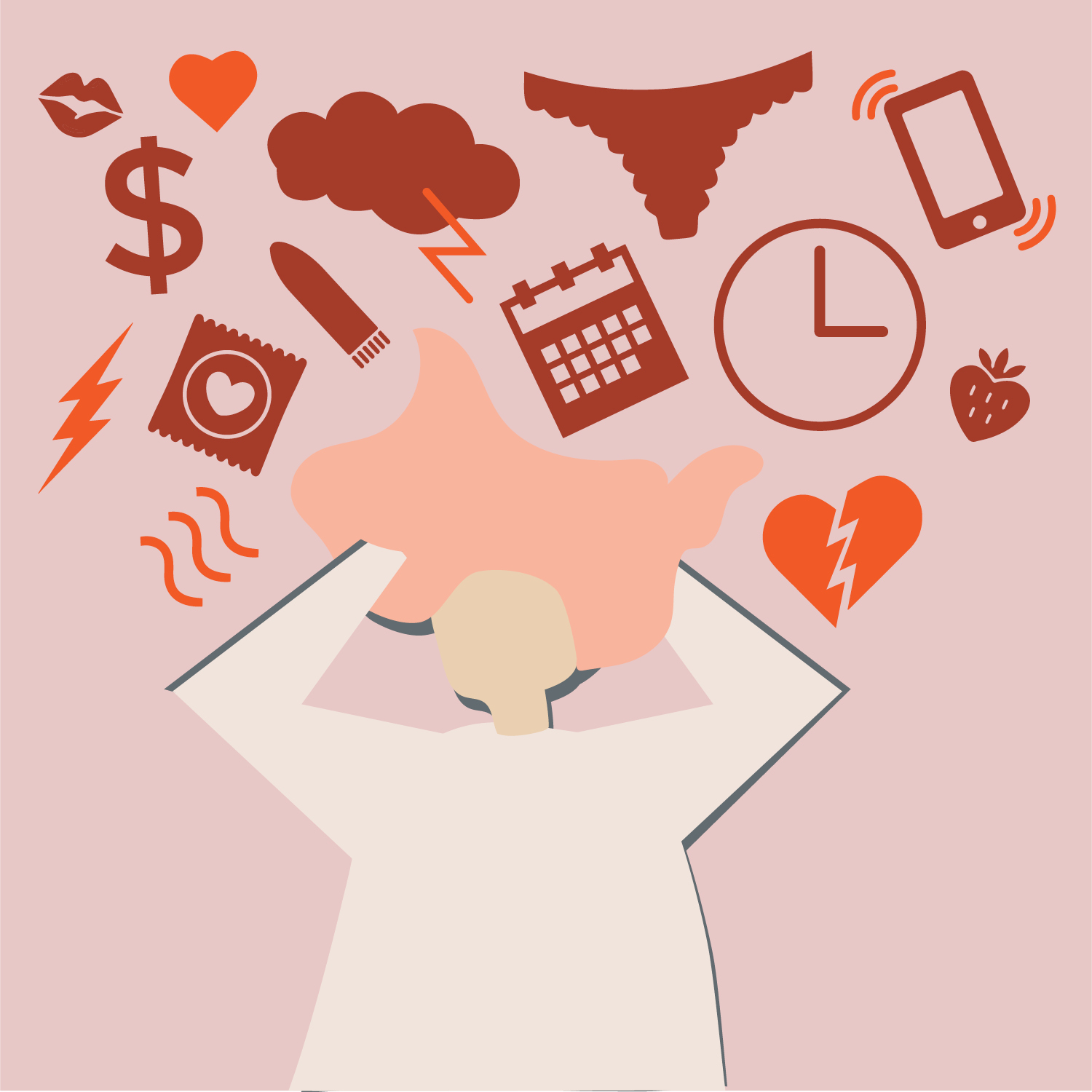Apr 26, 2021
FIRST PERIOD PROBLEMS & FAQ'S
In the fourth instalment of our First Period series, we address some common first period problems and frequently asked questions about what to (and not to) expect.
While everyone’s first period experience is different, there are a handful of questions that come up regularly – from how much pain is normal to whether or not you should exercise during your period. For first time period advice that separates fact from fiction, health educator and series expert Demi Spaccavento talks us through some of these common concerns.
FIRST PERIOD PROBLEMS
WILL MY PERIOD SYNC WITH MY FRIEND’S PERIOD?
The short answer is that it doesn’t work that way! The timing of your period is completely dependent on when you ovulate, which happens about two weeks before your period arrives. It is when one of your ovaries (in your internal reproductive system) releases an egg. If ovulation happens on time, you usually get your period on time. If ovulation happens early, you usually get your period early. If ovulation happens late, you usually get your period late.
ARE YOU STILL A VIRGIN IF YOU USE TAMPONS OR MENSTRUAL CUPS?
You are definitely, 100 per cent completely, without a doubt still a virgin if you use a menstrual cup or tampon and haven’t yet had sex! Virginity has nothing to do with tampons or menstrual cups. Virginity refers to whether or not someone has had sex.
There is actually no physical marker of virginity. In fact, virginity isn’t even a scientific term. The idea that anything entering the vaginal opening means someone is not a virgin is false.
Many people think that the hymen (a thin layer of tissue that surrounds the opening of the vagina) is a way to tell if someone has inserted anything into their vagina before, and that the hymen should break* and bleed when anything is inserted into the vagina.
This is false. For some people, it might never break, even if they are very sexually active. For other people, it might happen while they’re riding a bike or do the splits, even before they become sexually active. The hymen is not a marker of virginity.
(*Breaking of the hymen refers to the thin tissues around the vaginal opening slightly tearing. This sometimes may hurt or bleed, but not always.)
WILL OTHER PEOPLE KNOW I’M ON MY PERIOD?
No one has to know you’re on your period if you don’t want them to, and you don’t have to tell anyone until you’re comfortable to share that information. Of course, you should definitely tell a parent or parent figure when you first get your period so they can help you out. Some ways to keep your period private include showering regularly to prevent odours, changing your period products frequently to prevent any leaks that may get on your clothes, and keeping period products in your bag so that you don’t find yourself having to ask other people to borrow a pad or tampon.
WILL I GET PERIOD PAIN?
Everyone’s period experience is different, including the amount of pain they experience. The lining of your uterus is shedding and exiting the body, so some discomfort is expected. However, bad period pain is NOT something we should expect, or accept as a normal part of having a period. If period pain is leaving you unable to get out of bed, or stopping you from being able to carry on with everyday life, that’s a good time to seek help from a menstrual health specialist. Something else to keep in mind is that, unfortunately, period pain is often worse in teenage years. This is because our body and our hormones aren’t used to having a period, and it can take the body time to be able to have a period without pain. It’s ok if you have some period pain. With time, the ideal is to have very minimal pain during your period.
IS IT OK IF MY PERIOD IS LATE?
Ideally, periods should come every 21-35 days. In teenagers, it is more expected that periods might be more irregular. This is because your body and your hormones are still learning and practicing the process of having a regular period. If your period has been missing for more than three months, that’s the time to reach out to a menstrual health specialist to make sure there is nothing else standing in the way of you having a regular period.
PERIOD MYTHS EXPLAINED
MYTH 1: YOU SHOULD AVOID EXERCISE AND SWIMMING WHEN YOU HAVE YOUR PERIOD.
You can totally exercise and swim while you have your period! Regular movement and activity has actually been proven to help minimise period pain and PMS symptoms. So keep that body moving all month round. Sometimes when we have our period we don’t feel like doing intense exercise, and that’s ok. Listen to your body! You can go at 50 per cent effort instead of 100 per cent. Resting after exercise is also very important. If you want to swim when you have your period, you can wear a tampon or a menstrual cup. However, you cannot swim using pads.
MYTH 2: A TAMPON OR PERIOD CUP CAN GET LOST IN YOUR VAGINA.
Breathe a big sigh of relief – there is no physical way a tampon or period cup could get lost inside the vagina! Tampons and period cups sit within the vaginal canal. At the top of the vaginal canal is our cervix. The cervix feels like the tip of our nose with a tiny hole in the middle (this hole is only about the size of a pen tip). The cervix blocks the vaginal canal off from the rest of the body, and because this hole in the cervix is so small, there is no possible way a tampon or menstrual cup could move past the cervix.
MYTH 3: EVERYONE’S MENSTRUAL CYCLE IS 28 DAYS LONG
Everyone’s period is different. We often hear that periods should come every 28 days. While 28 days is the average, not everyone’s period needs to come on day 28. The average period comes every 21-35 days. If your period comes earlier than 21 days or later than 35 days, your body might just need time to regulate your period. As you get older, it should become more regular. If it doesn’t, you can have a chat with a menstrual health specialist to see how you can support your body to have a regular period.
MYTH 4: YOU CAN’T PEE WITH A TAMPON OR PERIOD CUP IN
You can absolutely pee with a tampon or period cup in! Tampons and period cups do not go in the same hole that we urinate from. We urinate from the urethral opening. It is very small and a tampon or period cup won’t fit, so don’t be afraid of accidentally inserting your tampon into the urethral opening. Underneath the urethral opening is the vaginal opening, where a tampon or period cup is inserted.
Stay in sync – enter your email below to get each new instalment of the First Period blog series delivered straight to your inbox when it’s published.
Blogs

Jun 08, 2022
EXPLORING PERIOD CARE IN CULTURES AROUND THE WORLD
Our TOM Talks panelist Sabina McKenna explores how different cultures around the world approach period care.
Read More
Jun 08, 2022
STOP APOLOGISING FOR HAVING YOUR PERIOD
Our TOM Talks panelist Mel Mason talks about the importance of not apologising for having your period.
Read More
Jun 07, 2022
STRESSED? NOT SLEEPING? TRYING TO CONCEIVE?
TOM Talk's panelist Georgia Hartmann discussed the links between stress, sleep and fertility.
Read More
Jun 07, 2022
STRESS AND HOW IT AFFECTS YOUR SEX DRIVE
Certified sex coach Georgia Grace is here to unpack the link between stress and sex.
Read More